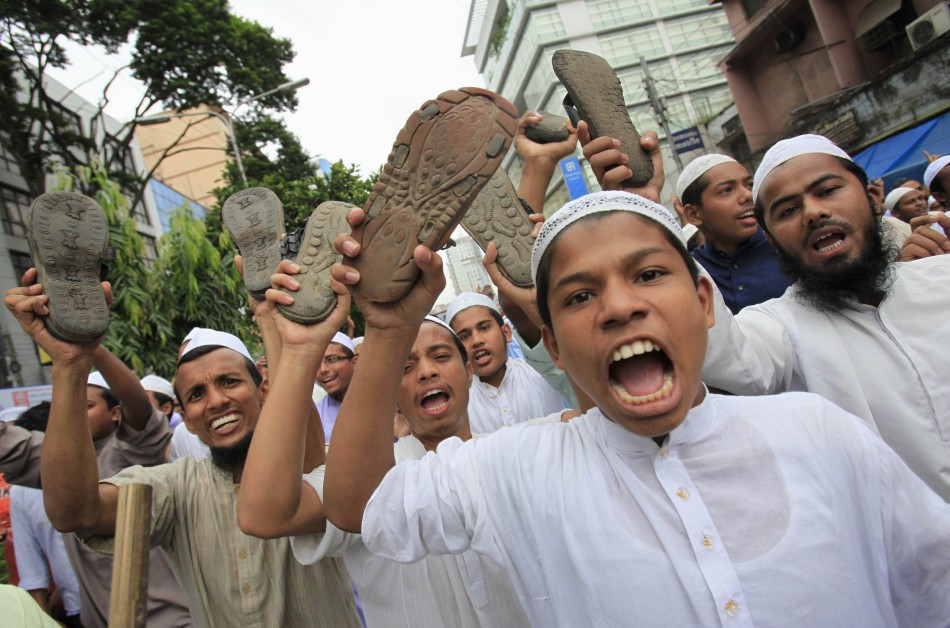Islam Versus Europe
December 16, 2013

The integration genocide plan recently presented to the French government aims to regulate the way in which journalists are allowed to refer to the invader population, thus limiting the information French people are allowed to receive about the consequences of the invasion.
Principle 1.1
Recognition comes through “non-designation” because “to designate is to classify and stigmatise”
Out of a concern for setting an example, revise all the lexical registers used within and by institutions of public action as well as by the media and political parties.
Specifically that translates to:
Inscription in the various charters “quality”, “welcome”, (Marianne Charter particularly) …of a dimension that respects the identities of individuals on the same basis that a hospitalised patient is respected for example (“hospitalised patients are treated with consideration. Their beliefs are respected. Their privacy is preserved as well as their peace of mind…”
…
Putting in place recommendations for the media and thus journalists using what is done in Belgium as a model.
In 1994, the AGJPB [tn: journalists’ association] and the Centre for Equality of Opportunities and the Struggle Against Racism published a guide on “Recommendations for information concerning non-indigenes” following a study into the way the media speak of migration and people of foreign origin. Thus the first recommendation is “not to mention the nationality, origins, ethnic membership, skin colour, religion or culture unless this information is relevant.”
The fact of looking into the resort to sanctions to enforce non-designation. In this field, reference could be made to what has been developed in the United Kingdom or Canada aiming to put in place a crime of “racial harassment”. The interest aspect of this notion lies in the fact that not only racist acts or remarks are in question but the fact of being unjustly humiliated because of one’s origins.
These guidelines, an equivalent of the NUJ Guidelines on Race Reporting in Britain, are clearly already being followed by French journalists, except in rare cases. But now this plan envisages introducing criminal sanctions to punish those rare instances of truth-telling.
What is offensive here is that journalists will decide what is “relevant” and what is not. If people with certain characteristics are disproportionately involved in certain kinds of activity, that information deserves to be known so that it can feed into the formulation of and democratic reflection on government policy. For example, if people of recent immigrant origin are disproportionately involved in crime, that’s a factor that deserves to be taken into account when considering the country’s immigration policy. But journalists, in France and throughout Europe, are systematically denying people the information they need to evaluate and reflect on government policy.
In part, this derives from the American example, where such practices prevail in relation to negroes. But here’s the fundamental difference. Negroes have been present in the United States since it was first reformulated as an independent state. They are not there as a result of government policy. Even there, the disproportionate negro involvement in crime deserves to be considered in relation to many other policies. So there is still no excuse for journalistic deceit. But it is even less excusable in Europe, where non-Europeans are only present in significant numbers because of immigration policies. Europeans deserve the information required to assess the results of those policies, yet that information is systematically denied to them by the establishment media.
 Daily Stormer The Most Censored Publication in History
Daily Stormer The Most Censored Publication in History


